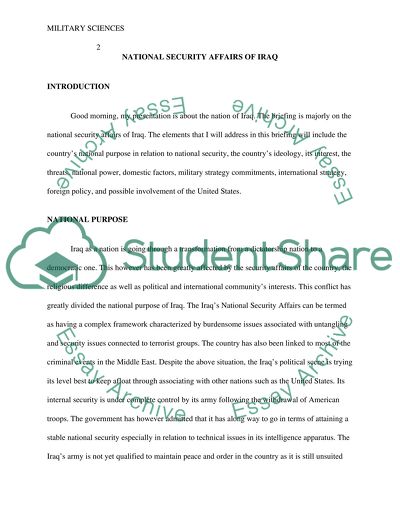Cite this document
(“National Security Affairs of Iraq Research Paper”, n.d.)
National Security Affairs of Iraq Research Paper. Retrieved from https://studentshare.org/military/1468653-national-security-affairs-of-iraq
National Security Affairs of Iraq Research Paper. Retrieved from https://studentshare.org/military/1468653-national-security-affairs-of-iraq
(National Security Affairs of Iraq Research Paper)
National Security Affairs of Iraq Research Paper. https://studentshare.org/military/1468653-national-security-affairs-of-iraq.
National Security Affairs of Iraq Research Paper. https://studentshare.org/military/1468653-national-security-affairs-of-iraq.
“National Security Affairs of Iraq Research Paper”, n.d. https://studentshare.org/military/1468653-national-security-affairs-of-iraq.


